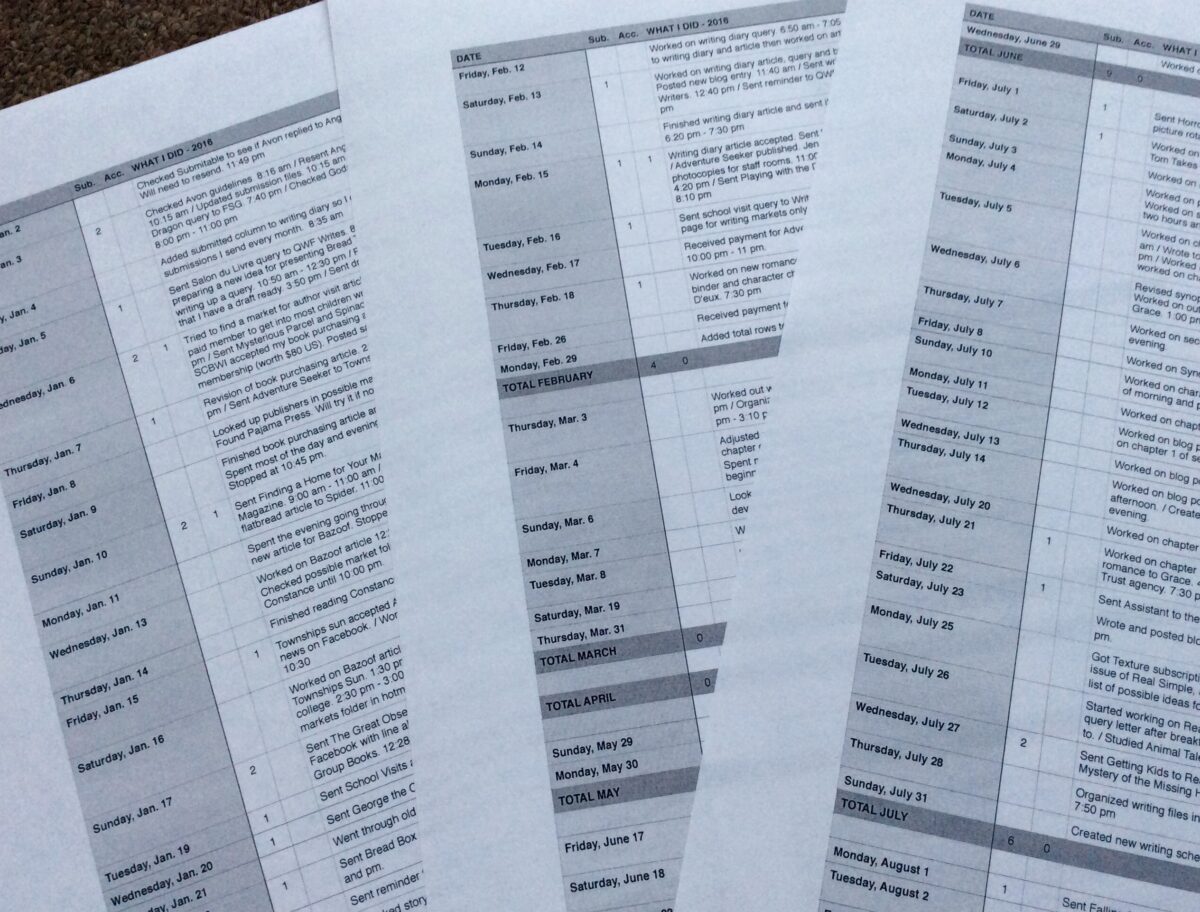When you’re writing part-time it can be difficult to judge if you’re making progress or stagnating. Everything seems to take longer to get done. And if your interests are varied, you’ll probably have lots of projects at different stages of completion. As you hop from one to the next, you may start to feel that you’re not getting anywhere at all.
For me progress comes when I do two things: write regularly and submit regularly.
Of course the writing process involves much more than that, such as brainstorming, researching, planning, outlining, keeping up with industry news, promoting, networking, and taking classes. But if I stop producing new words and submitting on a regular basis, my progress slows down or comes to a complete standstill.
Sure, life happens. On any given day, countless things pop out of nowhere to interfere with my progress. I can make as many excuses as I want, but it won’t change the fact that I’m not writing, not submitting, and definitely not moving forward.
So how do you keep the momentum going to make sure you’re making progress with your writing career? One thing I started to do at the beginning of the year was to keep a writing diary. It helps me see exactly what I accomplish each month. Using a spreadsheet, I make an entry each day that I do something related to writing.
A quick look at my diary shows me exactly what I spent my writing time on, when I made the most progress and when I didn’t. Some months are packed full while others are embarrassingly bare. Usually those bare months of writing and submitting are also my most productive for translating. Some might argue that translating is a form of writing so I should include it in my diary. Although that’s technically true, I prefer to keep the two separate as it would be very easy for me to fill all of my writing time with translations.
HERE’S A SIMPLE WAY TO MAKE YOUR OWN WRITING DIARY USING A SPREADSHEET:
Column 1 – Date (today’s date)
Column 2 – Submitted (number of queries or manuscripts sent out today)
Column 3 – Accepted (number of queries or manuscripts accepted today)
Column 4 – What I Did Today (short description of each writing task accomplished, add the time you started and finished each one if you like)
Column 5 – $ Earned (money earned from work accepted)
Column 6 – $ Received (money received from work completed)
My writing diary helps me have a more balanced life. It ensures my translating and library work each have their own space and allows me to make adjustments so they don’t overly encroach on or totally take over my writing time.
Curious to see what a writing diary might do for you? Then give it a try! You can then come back here at any time and let me know in the comments below if it made an impact on your writing progress.
Meanwhile, make sure to keep writing and submitting!
